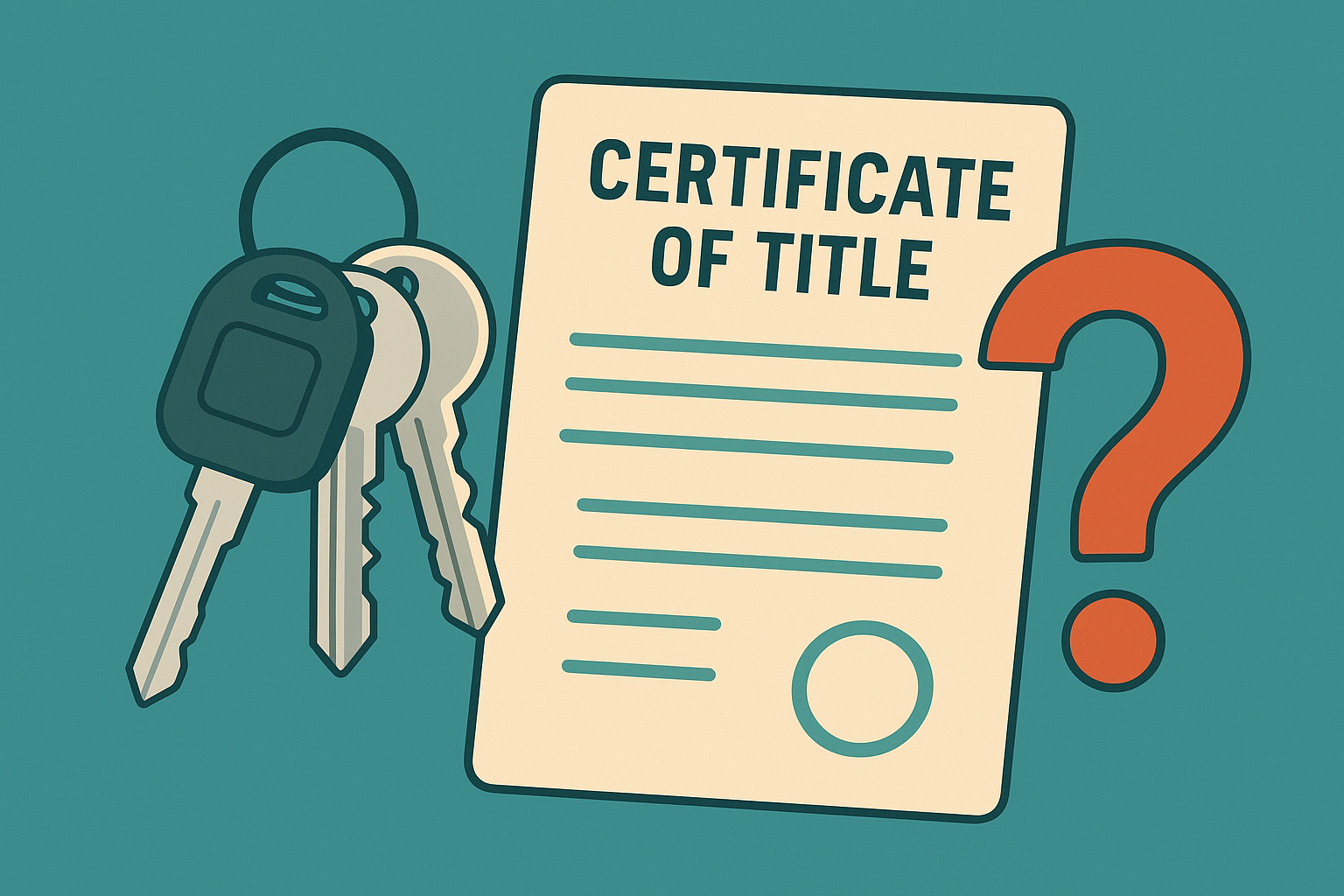Losing the title to your vehicle can be a stressful experience. Whether it’s your car, boat, or RV, that little piece of paper is essential for proving ownership, registering, selling, or even insuring your vehicle. If the title is missing, the path forward might seem unclear. Fortunately, there is a solution: a title bond.
What Is a Title and Why Is It Important?
A vehicle title is a legal document issued by your state’s Department of Motor Vehicles (DMV) or a similar agency. It proves that you are the lawful owner of the vehicle and contains important details such as:
- Owner’s name and address
- Vehicle Identification Number (VIN) or Hull Identification Number (HIN)
- Make, model, and year of the vehicle
- Odometer reading (for cars and RVs)
- Lien information, if applicable
Without a title, you cannot register the vehicle, transfer ownership, or obtain a loan. That’s why it’s critical to have one. When the original title is lost or never issued, a title bond can help you get a replacement.
What Is a Title Bond?
A title bond, also known as a lost title bond or bonded title, is a type of surety bond required by the DMV when you can’t provide the original title to a vehicle. It acts as a financial guarantee that you are the legitimate owner and protects any previous or future owners if a dispute over ownership arises.
If no one challenges your ownership during the bond period (usually 3-5 years), you’ll receive a standard title once the bond expires.
When Do You Need a Title Bond?
You may need a title bond if:
- You bought a vehicle without receiving a title
- The title was lost, stolen, or damaged beyond recognition
- The vehicle was abandoned or inherited, and the original title is unavailable
- The seller can’t be located to sign over the title
How to Get a Title Bond: Step-by-Step
- Check Your State Requirements: Visit your state DMV’s website or contact them directly to confirm that a bonded title is an option for your situation.
- Determine the Bond Amount: The bond amount is usually 1.5 to 2 times the vehicle’s current value. You can find this value using pricing guides like Kelley Blue Book or NADA.
- Apply for a Title Bond: Visit www.titlebonds.us to apply quickly and easily. You’ll need to provide details about the vehicle and your situation.
- Submit Your Bonded Title Application: After purchasing the bond, submit it along with your application to your state DMV. Include any required forms, affidavits, and identification documents.
- Receive Your Bonded Title: If approved, the DMV will issue you a bonded title, which you can use like a regular title, with a “bonded” designation.
- Wait for the Bond Period to End: If no ownership claims are made during this time, you can request a clean title.
Hypothetical Examples
Car: Sarah bought a used car from a private seller who promised to send the title but never did. Weeks passed with no contact. To register the car, Sarah needed proof of ownership. She got a title bond through TitleBonds.us and submitted the paperwork to her DMV. A few weeks later, she had a bonded title in hand.
Boat: Tom inherited an old fishing boat from his grandfather but couldn’t find the title. The DMV required a title bond since there was no record of a formal transfer. Tom used TitleBonds.us to get bonded, allowing him to register the boat in his name.
RV: Lisa bought a vintage RV from an estate sale. The previous title was lost during probate. She applied for a bonded title, got her bond through TitleBonds.us, and successfully registered the RV for a summer road trip.
Frequently Asked Questions (FAQ)
Q: How long does a title bond last?
A: Typically, title bonds last 3 to 5 years, depending on your state. After that, you can apply for a standard title.
Q: Can anyone challenge my bonded title?
A: Yes, during the bond period, if someone proves they are the rightful owner, the bond covers financial losses. However, challenges are rare if the vehicle was acquired legally.
Q: What if the vehicle has a lien?
A: You cannot get a bonded title if there’s an active lien unless the lienholder provides a release. Always resolve liens before applying.
Q: How much does a title bond cost?
A: The cost is a small percentage of the bond amount, often between $100 and $300 for most vehicles. TitleBonds.us offers competitive rates.
Q: Can I sell a vehicle with a bonded title?
A: Yes, but the “bonded” status will be visible to buyers, which may affect resale value. Once the bond period ends, you can request a clean title.
Losing your vehicle title doesn’t mean you’re out of options. A title bond is a straightforward and reliable way to reclaim ownership and get back on the road (or water). For a hassle-free experience, trust www.titlebonds.us to guide you through the process. They specialize in helping vehicle owners like you get bonded quickly and affordably.



